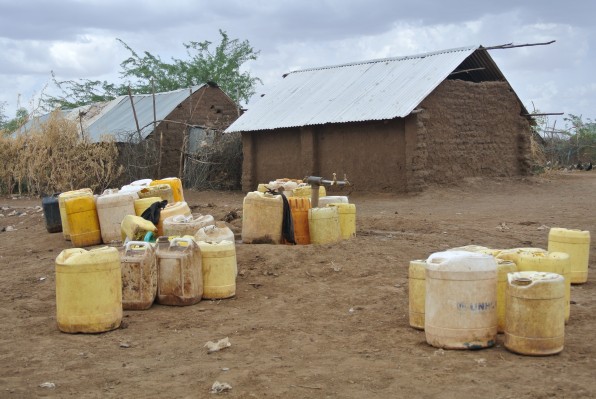Mako, a young 23-year-old Ethiopian refugee, begins to tell her story. Her back is straight, her hands are folded in her lap, and she looks directly at our RefugePoint Protection Officer. Her voice is strong. She doesn’t shake or pause like others in the past. In fact, Mako draws her chair closer to the desk, as if trying to add weight to her already remarkable story.
Mako is here for a protection interview. This is a process thousands of other refugees in Kakuma camp experience. Held at the UNHCR compound, refugees like Mako share their stories and officers complete assessments based on their vulnerability, and when appropriate, recommend resettlement as a durable solution. It’s been almost an hour and Mako seldom hesitates to answer any of our officer’s questions. This might be the first time anyone has listened to her story, her worries and her fears.
Born in Ethiopia, Mako was persecuted for participating in the student movement in her home country as a 16-year-old teenager. During one demonstration, soldiers arrested Mako and detained her for three months where she was repeatedly raped, beaten and tortured. One rape resulted in a child whom she named after her father.
After Mako was released from detention, she could not continue her education and care for her newborn son at the same time. Instead, she started working as a house servant. In the months following, soldiers continued to threaten her and she was forced to flee to Kenya where she arrived in Kakuma with her child and eventually here in front of our RefugePoint officer.
Mako pauses for a long moment as she begins to talk about her life in the camp. It’s hard not to wonder whether she is safe. She says she isn’t.
Mako says she is alone and she fears she will be forced to marry against her will. An older man in the camp had promised her protection earlier, but when she became pregnant with his child, he abandoned her. Although she is thankful for UNHCR’s shelter and the food rations she receives from the World Food Program, it doesn’t go far and her children are constantly sick. She doesn’t know what will happen to her small family and she is scared.
Near the end of the interview, our officer asks Mako whether she wants to get married some day.
“This is the last thing on my mind,” Mako responds defiantly. “I want to focus my time and energy on my children, and if possible, on my own education.” Despite her hardships, Mako is determined to be independent. She enrolled in adult education classes in the camp where she studies English with other refugees.
When the interview concludes and Mako heads back out into the uncertainty that surrounds her family’s future, our officer makes her recommendation to UNHCR: eligible for and in need of resettlement.
* For the safety of both Mako and our staff, names have been changed and/or omitted; however, the stories are true.
